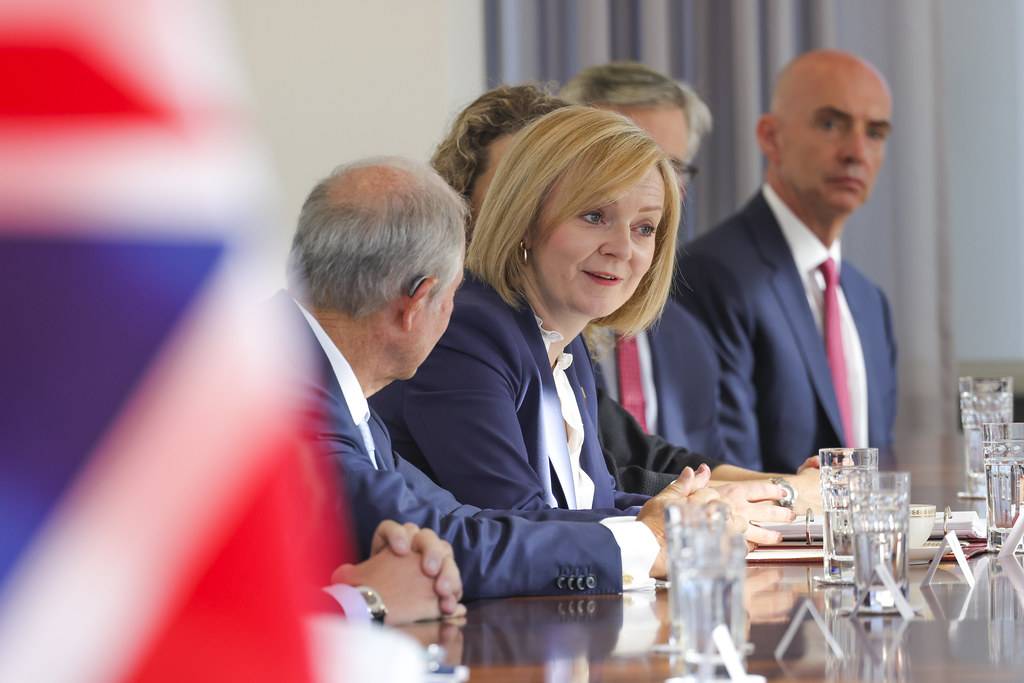At that time, both the countries were engaged in the fifth round of negotiations and had completed as many as 17 of the 26 chapters that would be covered by the FTA…reports Asian Lite News
India and the UK are sticking to the Diwali (October 24) deadline to hammer out a free trade agreement (FTA), despite concerns about the pace of negotiations in recent months due to political churnings in the UK and the death of Queen Elizabeth-II earlier this month.
A top government official said that the UK, under the new Prime Minister Liz Truss, has reaffirmed its intent to stick to the Diwali deadline. “That’s reassuring,” he added. What has turned out to be an impetus for the FTA talks is the fact that Truss had pushed for the deal when she was the UK’s international trade secretary. Of course, the UK had earlier conveyed to the Indian negotiators that there was broad-based support for the deal with New Delhi.
However, for the deal to be clinched within the Diwali deadline, negotiations have to move at a rapid pace. Both the sides couldn’t expedite the talks the way they had planned in April, when then British Prime Minister Boris Johnson had visited India and pushed for the Diwali deadline. This was mainly due to the change of guard at the UK and the national mourning after the queen’s demise.
Commerce secretary BVR Subrahmanyam had in July said both the sides could wrap up negotiations by the end of August. So, after the process of legal scrubbing and other internal clearances (like Cabinet approval), the deal will be ready before the deadline to be signed.
At that time, both the countries were engaged in the fifth round of negotiations and had completed as many as 17 of the 26 chapters that would be covered by the FTA.
Both India and the UK launched formal negotiations in January for the FTA, which could ultimately cover more than 90% of tariff lines. They aim to double bilateral trade of both goods and services to about $100 billion by 2030. The India-UK trade is dominated by services, which make up about 70% of the overall annual commerce.
Given that this is going to be a modern-day FTA, it will go beyond the traditional pillars like goods, services and investments; it will also cover a range of areas, including gender, trade and development, labour, corruption and MSMEs.

